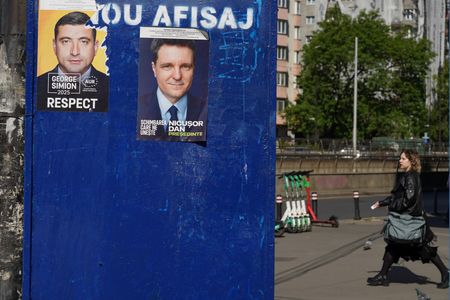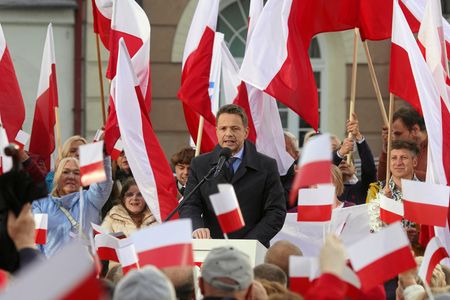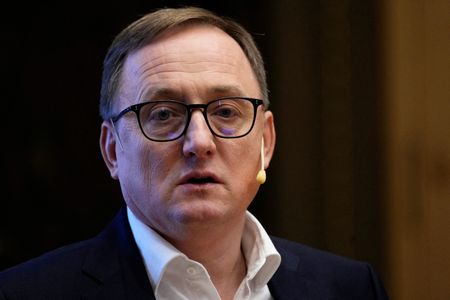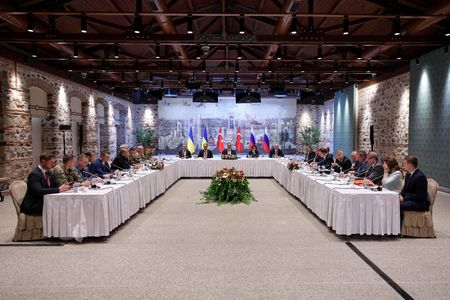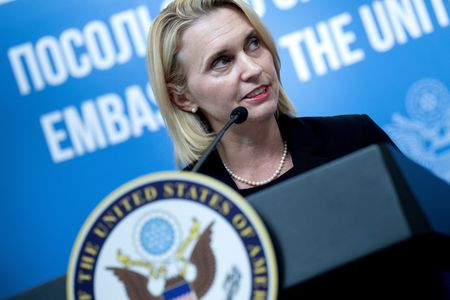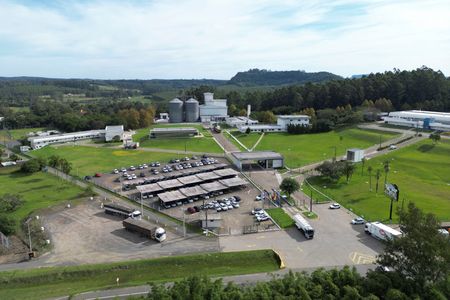BUCHAREST (Reuters) – Here’s what to know about Sunday’s run-off vote in Romania’s presidential election, pitting hard-right eurosceptic lawmaker George Simion against centrist independent Bucharest mayor Nicusor Dan.
THE CANDIDATES
Simion, 38, opposes military aid to Ukraine, is critical of the EU’s leadership and says he is aligned with U.S. President Donald Trump’s Make America Great Again movement.
Dan, 55, is staunchly pro-EU and NATO, and has said Romania’s support for Ukraine is vital for its own security against a growing Russian threat. He has promised to clamp down on corruption.
Simion has been ahead in most opinion polls although the most recent survey this week put him neck-and-neck with Dan.
PRESIDENTIAL POWERS
Romania’s president has a semi-executive role that includes commanding the armed forces and chairing the council that decides on military aid and defence spending. The president has oversight over foreign policy, with the power to veto EU votes that require unanimity among member states.
The president nominates the prime minister and appoints chief judges, prosecutors and secret service heads.
The mandates of three out of nine judges on Romania’s Constitutional Court – the top court which canceled the initial presidential vote in December – expire this summer. The president gets to appoint one, with parliament responsible for the other two.
The next president will also appoint vacant top secret service positions and chief judges, giving him power to influence policy. Analysts have said a cabinet could be in place no earlier than late June.
Still, Romania’s parliament has more powers than the president. A parliamentary majority could overturn many presidential decisions. It must approve his prime minister pick and it can foil attempts to trigger snap elections.
GOVERNMENT
The current legislature is almost equally split between centre-left, centre-right and hard-right parties.
Leftist Social Democrat (PSD) Prime Minister Marcel Ciolacu resigned after Simion swept the first presidential election round on May 4, collapsing the pro-Western government. The interim cabinet cannot issue decrees or change policy.
Whoever is elected president will need to nominate a prime minister and see a new government quickly installed to reduce Romania’s budget deficit, the largest in the EU, reassure investors and avoid a credit rating downgrade.
The next president’s pick for prime minister can influence a new parliamentary majority.
Dan has promised quick talks with pro-European, pro-NATO parties. Simion has said he could not rule out snap parliamentary elections to get his desired prime minister and ruling majority.
Regardless of who wins, a majority cannot be formed without the PSD, Romania’s biggest party, which is split between leaders with pro-Western views and those who lean hard right.
Analysts have not ruled out a minority government with parliamentary backing on a case-by-case basis, which would extend political instability.
FISCAL WOES
The extended election cycle – Romania held four ballots in 2024 including the one that was canceled and is being re-run this month – has contributed to the country’s economic problems. Romania is running the EU’s largest budget deficit – 9.3% of output last year.
Romania’s fiscal crisis has spooked markets and it is in danger of having its access to EU funds frozen and a credit rating downgrade from the lowest rung of investment grade.
Both candidates have rejected the idea of tax hikes to shore up public finances – which analysts and ratings agencies have said are all but inevitable.
However, Simion’s policy objectives are seen as carrying greater market risks. He has said he backs tax cuts at the minimum wage level, and supports nationalization of companies that exploit Romania’s natural resources.
He has a plan to cut 500,000 jobs from the 1.3 million public sector over five years.
Dan supports better absorption of EU funds and cutting tax evasion. He has said most of the fiscal correction should be done through spending cuts.
(Reporting by Luiza Ilie; Editing by Frances Kerry)

